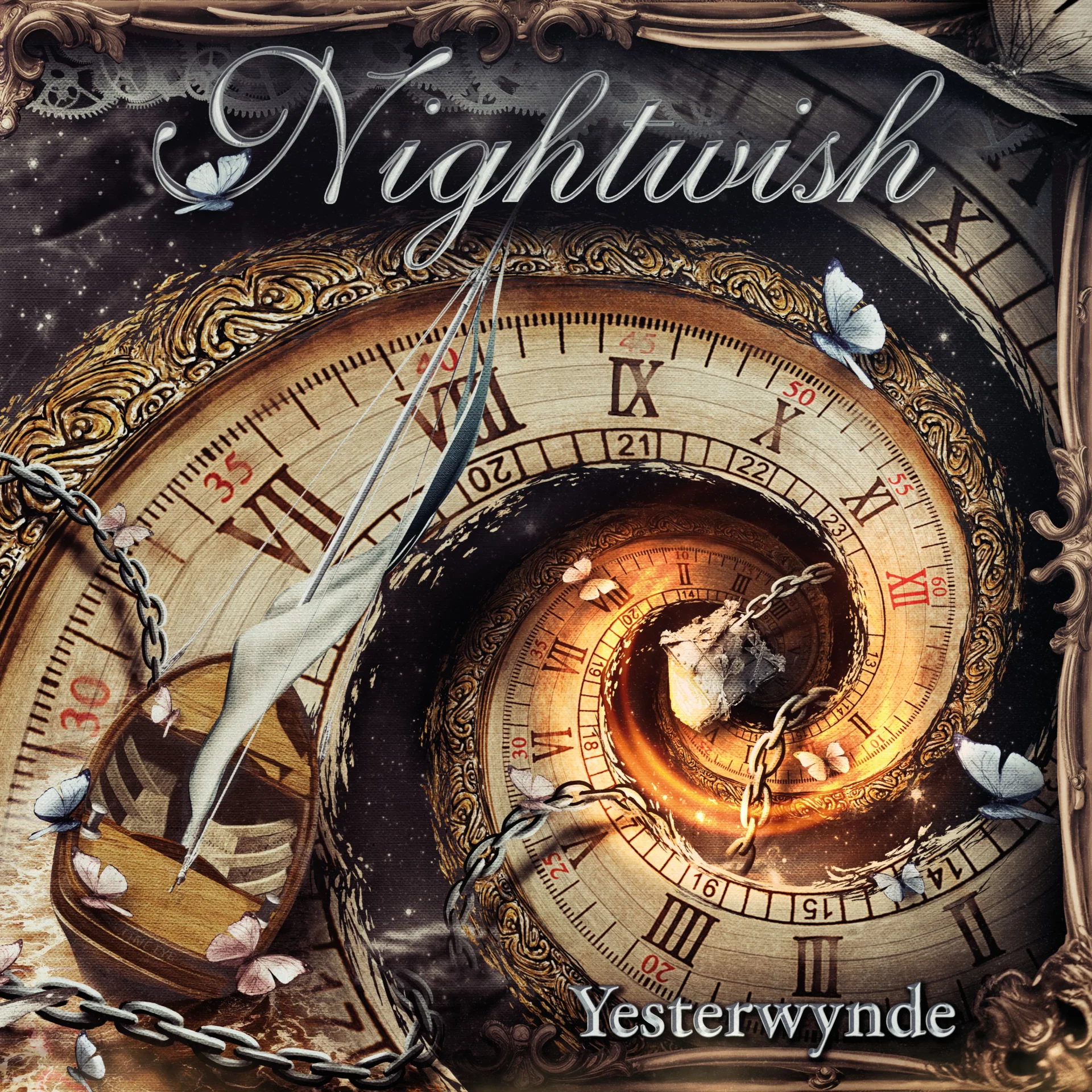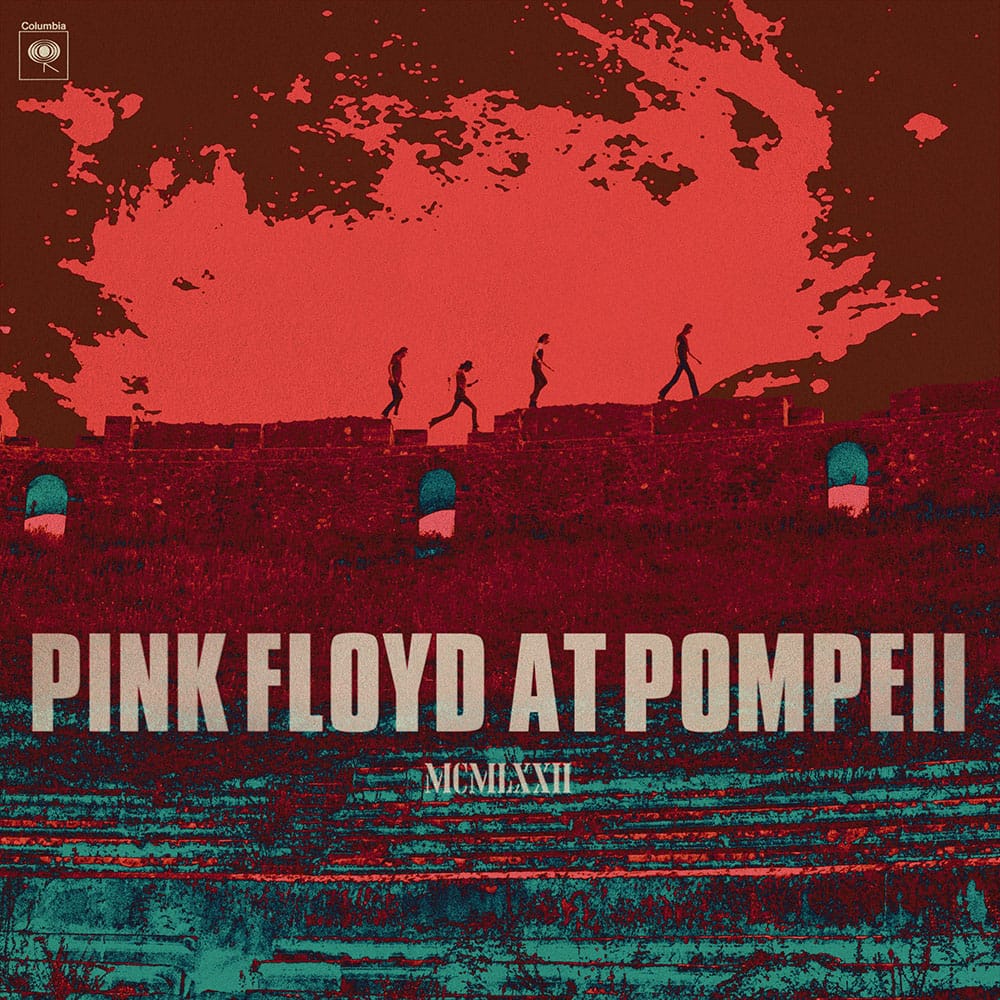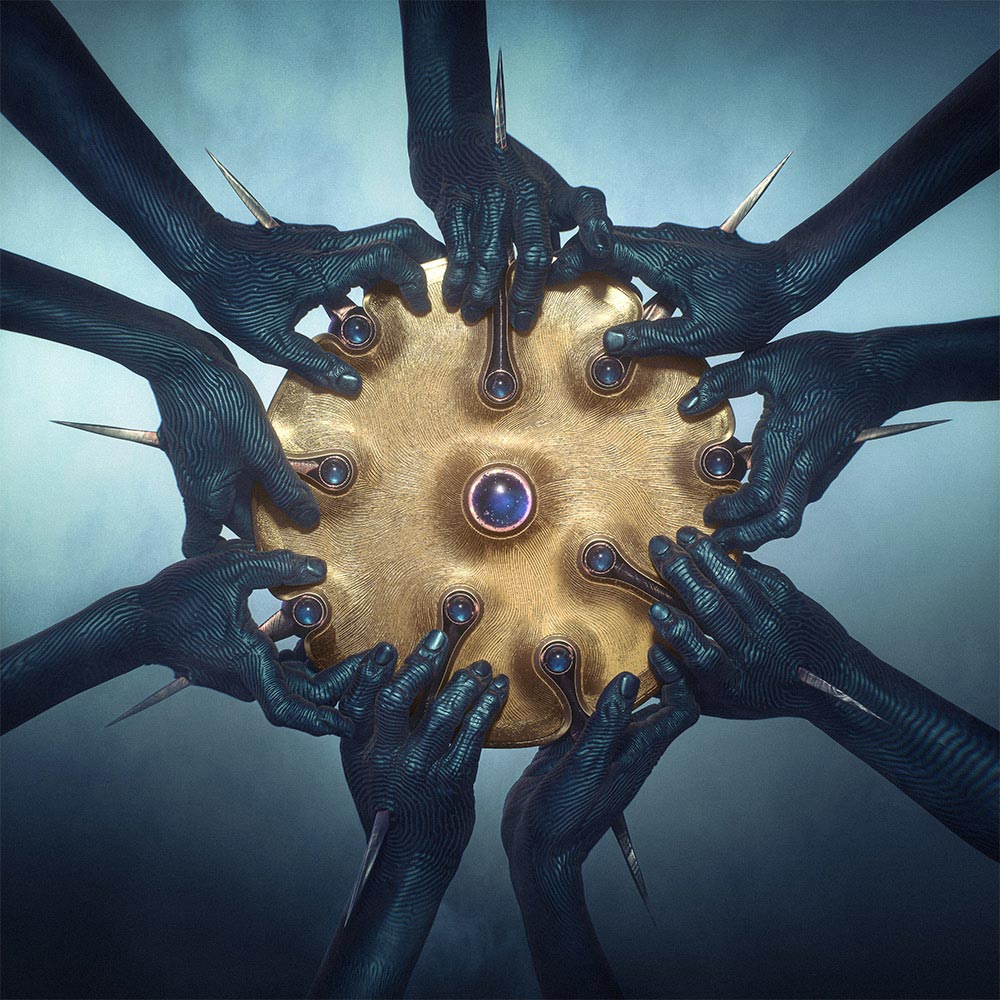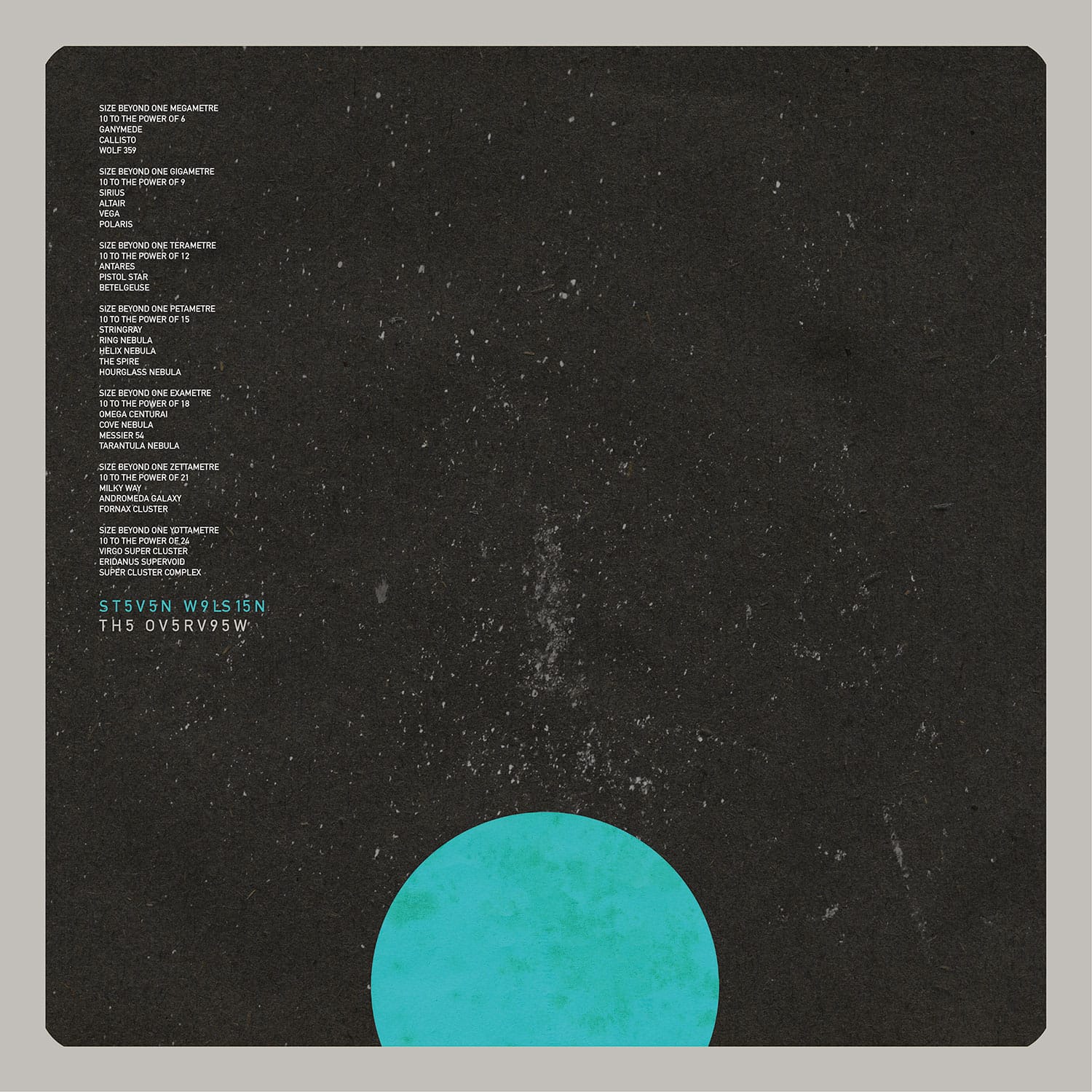The Finnish symphonic metal band, Nightwish, delights us with their new album, “Yesterwynde,” the third with current vocalist, Floor Jansen.
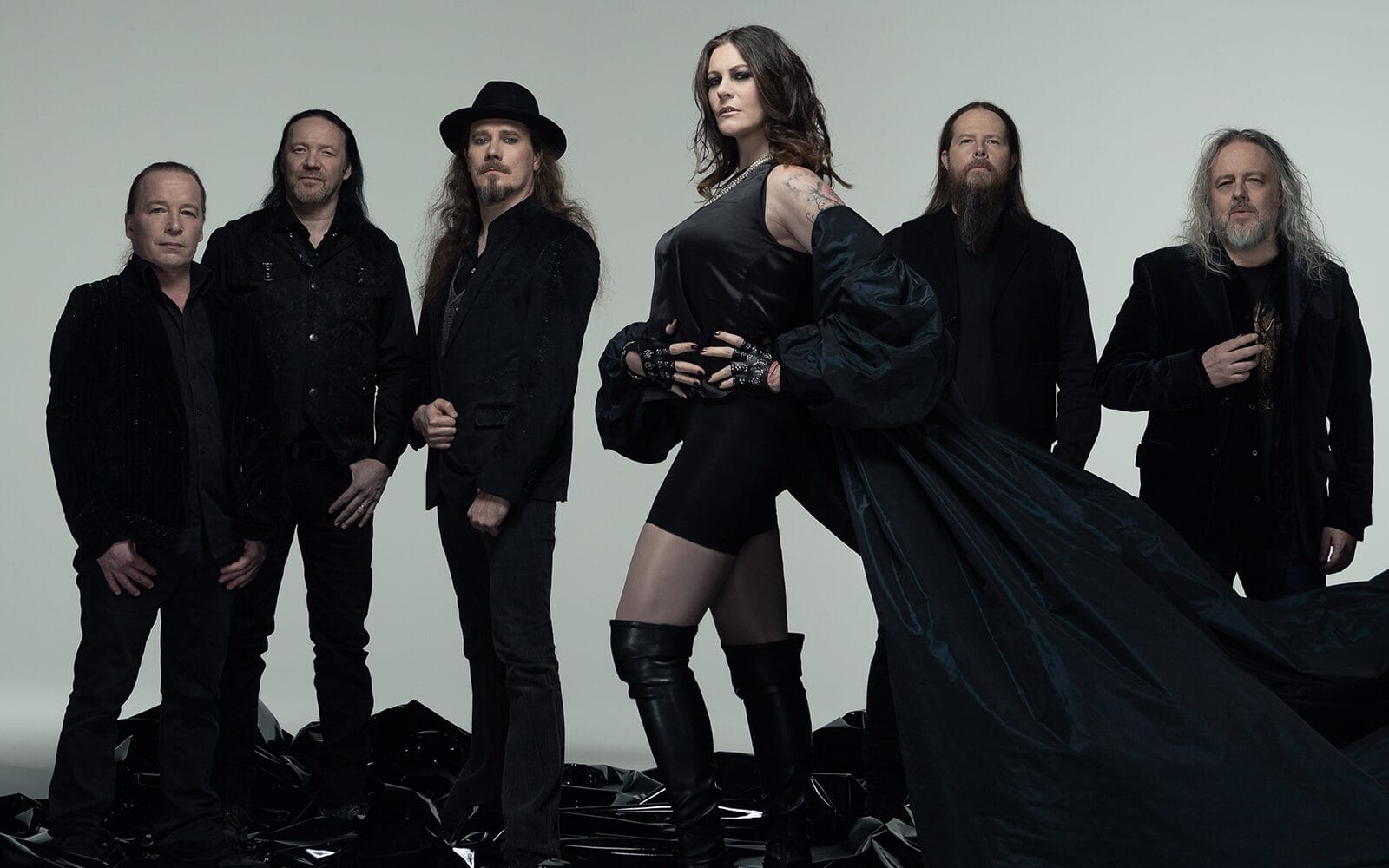
The album opens with the title track. We are greeted by the sound of an old film projector, announcing the album’s intent: it is probably meant to be understood as a film. It’s a short piece that soon introduces a choir of female voices with a clerical sound, immediately immersing us in the universe of Nightwish, followed by an arpeggiated acoustic guitar sequence, accompanied by a flute, over which Floor Jansen’s beautiful voice extends smoothly. This track serves purely as an introduction to the album.
About the title, “Yesterwynde”, it is a word invented by the band, which “describes a feeling that cannot be found in any human language. That’s why we had to invent a whole new word. The album is supposed to open that feeling to the listener.”
The second track, “An Ocean of Strange Islands,” is the longest song in the collection, lasting nine and a half minutes. An assault on the senses, it quickly brings everything that is Nightwish into play: bombastic symphonic metal with intricate and complex arrangements; poetic, fantastical, philosophical, and dark lyrics, with references to the ocean, and reminiscing about the past; and of course, the glorious musical imagination of the band’s main composer, maestro Tuomas Holopainen, who unleashes his mastery of the orchestra. This song will delight all fans of the band and is one of the album’s high points.
The song includes an extended instrumental part where the orchestra and choirs, recorded at the legendary Abbey Road Studios, shine like never before. I must say that Yesterwynde seems to me to be probably the album with the most consistently progressive and complex music the band has ever created.
“Perfume of the Timeless,” another particularly long song at 8 minutes, opens with orchestral percussion, where the atmosphere gradually builds, leading into female choirs, followed by a typical Nightwish sound with wicked orchestral strings over a metal rhythm. Beautiful.
The lyrics, typical of Nightwish in Floor Jansen’s era, deal with human evolution, and how our existence is the result of an endless chain of our ancestors’ lives.
“We are their heir, dust on their palm. We are because of a million loves. We’re the perfume of the timeless, last sighs on a deathbed.”
Holopainen remarks on this, saying, “each of us is part of an unbroken chain that stretches back billions of years. If even one of your ancestors had died too young – mauled by a cave bear, for example – during this incredibly long period of time, you would never have been born. In other words: our existence is such an unfathomable privilege!”
Essentially, we are one more link weaving the human chain. This theme appears throughout the album.
The arpeggiated acoustic guitar, introduced from the beginning of the album, makes a reappearance in “Sway,” a short, soft, and beautiful piece, where Floor and multi-instrumentalist Troy Donockley perform a vocal duet. This song contrasts pleasantly with the rest of the album’s metal sound. “Sway” concludes with an outro featuring percussion and flute.
I find it interesting that in a couple of songs, “The Day Of…” and “The Children of ‘Ata,” there are some electronic synthesizer sounds, even using an auto-arpeggiator, something I didn’t expect to hear on a Nightwish album, but it seems to blend well with the rest of the orchestral and metal elements.
I must mention that the lyrics of “The Children of ‘Ata” are based on the story of the Tongan Castaways, a group of children from Tonga who shipwrecked on ‘Ata island and survived on their own for 15 months. The song also features native Tongan singers. It’s an excellent song.
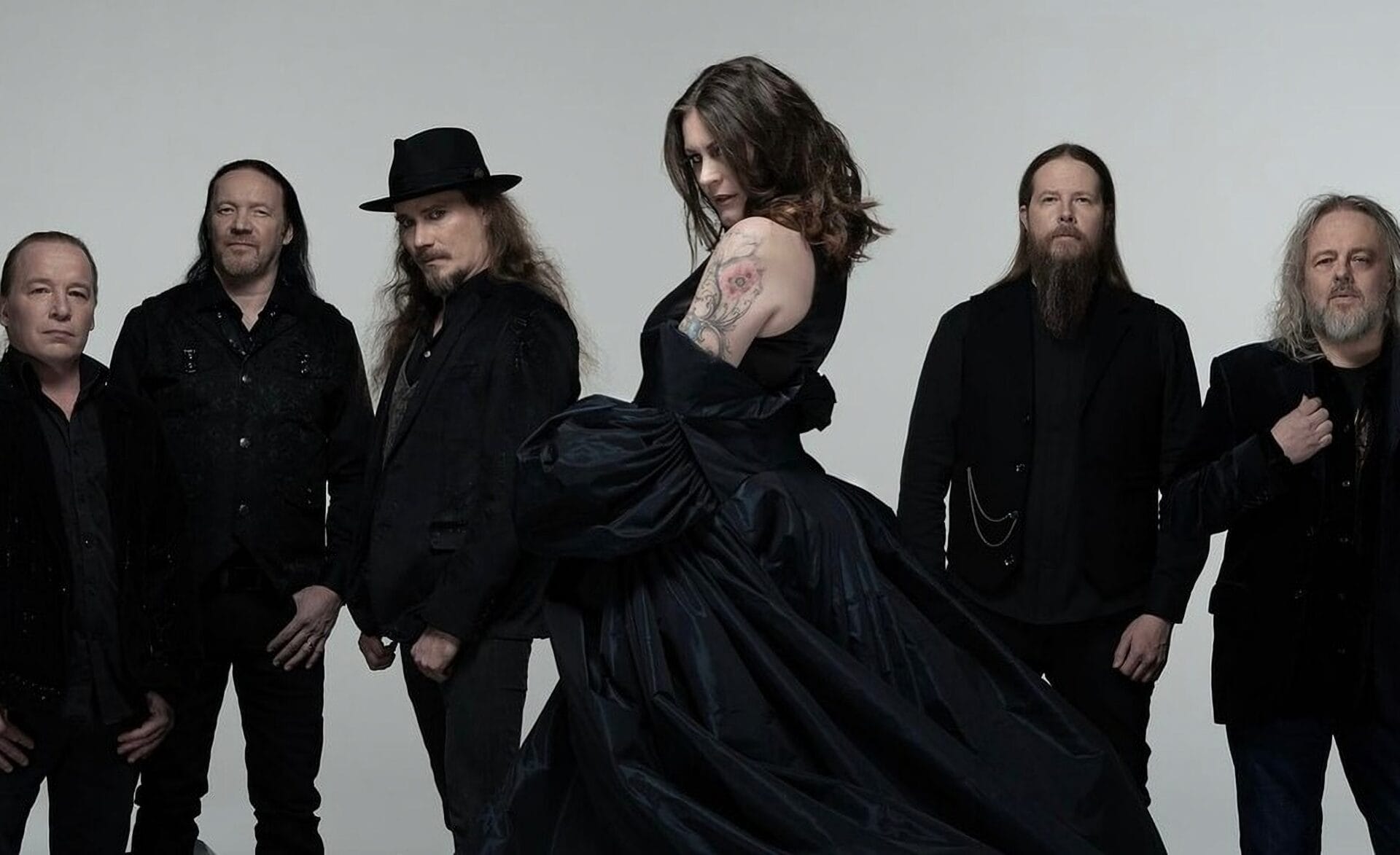
“Hiraeth” brings back the acoustic guitar for the last time, over which Floor and Troy make another duet, singing nostalgic lyrics, followed by a rock part led by Uilleann pipes, showcasing the folkloric sound of Celtic music that Nightwish loves to use so much.
The album ends with “Lanternlight,” a soft ballad with a classic sound and a sad feeling. Based on piano, and accompanied by orchestral strings, Floor’s voice shines as its main star. The song concludes with the same sound of the old film projector that opened the album, this time shutting off, thus closing the cycle and ending the film titled “Yesterwynde,” so to speak.
As a final note, this is the first album made without the participation of Marko Hietala, who was Nightwish’s bassist and secondary vocalist, but decided to leave the band after almost 20 years.
Additionally, as has become tradition for Nightwish, the album includes an extra version of the songs featuring only the orchestral accompaniment. It’s an excellent bonus for all band enthusiasts.
I consider Yesterwynde to be the Nightwish album I’ve been waiting my whole life to hear. All the songs are excellent, perfectly composed and executed. The production sound is wonderful. In fact, I think the Finnish group has never produced an album that sounded so good.
In fact, Tuomas Holopainen, claims to have never worked so meticulously and obsessively on any of the band’s previous albums: “The new album was intensively worked on for 3.5 years. My ambition and piety really skyrocketed, and I just couldn’t let go of the creative process – and didn’t want to. Along the way, “Yesterwynde” became both an exhilarating obsession and a comforting haven for me. All aspects of the making – compositions, lyrics, arrangements, cover art, videos, mixing and so on – were given more attention than ever before.”
This is evident throughout. Yesterwynde features the mos complex and detailed collection of songs that the band has ever produced.
For me, it’s a huge joy to listen to “Yesterwynde” and let myself be fascinated by maestro Holopainen’s compositions, something I’m sure I’ll keep doing for a long time. I have no doubt in recommending the album to all fans of symphonic or progressive metal, as well as all lovers of complex and highly elaborate music.

